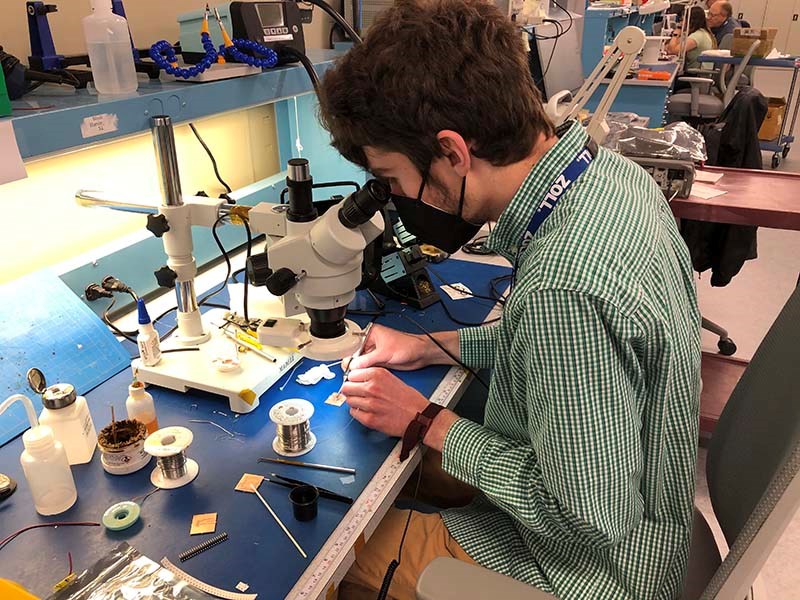In addition to the courses you will take at UMass Lowell, there are numerous opportunities to put theory into practice, such as projects, clubs, competitions, co-ops and research experiences.
- Co-ops: More than 300 ECE students in the past five years worked at 100 unique companies. The co-op experiences have helped our graduates to find ideal jobs before or soon after graduating.
- Faculty-led Research Projects: From artificial intelligence to robotics to solar energy, partner with our diverse faculty to solve problems.
- Advanced Lab Facilities: Build hands-on skills in our makerspace and other dedicated laboratories.
- Capstone Projects: Gain major design experience, collaboration skills and presentation mastery through managing your two-semester project.
- Student Organizations: Work with other students to create and learn through similar interests.



